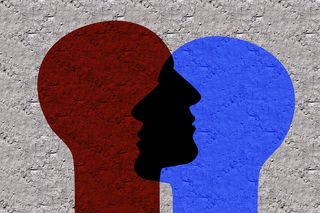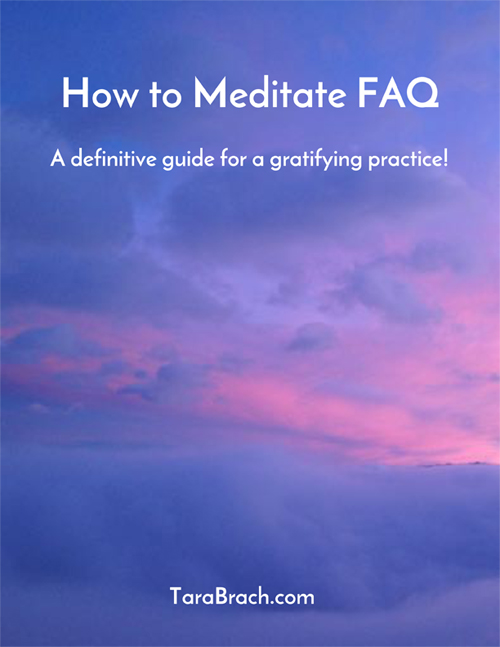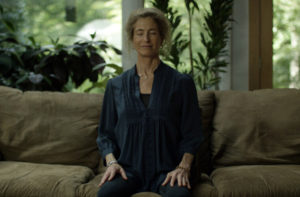Looking Through the Eyes of Another: Transforming Separation into Shared Consciousness
I often talk about how suffering arises from the unseen, unfelt parts of ourselves. Only when we become aware of what is here and bring presence to what we have been running from can we discover wholeness and freedom.
The same is true when we explore our relationships to each other and the world. We cannot be free if we are pushing anyone out of our hearts. If we are discounting, rejecting, or turning away, we are not living from our wholeness. It creates suffering. When we live in resentment, we have separated ourselves and pulled away from our belonging.
Trance of the Unreal Other
All life forms are designed to perceive separation. It is part of our evolutionary story. And in moments that we find ourselves stuck in reactivity or in some conflict or division, we create what I call an unreal other. Rather than a living, feeling Being with wants, needs and fears, another person has become an idea in our mind and is not subjectively alive or real to us. They are two-dimensional and flat. The more stressed we get, the less real they become. We are the protagonist of our own story and the other is like a puppet or a pawn. We begin to see them as something that can help us, hurt us, or as simply irrelevant.
We create an unreal other any time we begin to sense aversion and distance with another. There is the anger, blaming, and resentment that we sometimes feel in our close-in relationships, but there is also a level of pushing people out of our hearts on a larger scale, where our perceptions of ourselves and others are being filtered through stereotypes. Too often, we are not even aware that this is happening. We may have labeled a group of people as different, inferior, bad, or maybe even dangerous. Whether it is with a partner or a child, a political candidate, or even more global, when we are caught in aversive reactivity, we have created an unreal other.
The Suffering of Stereotypes and Predispositions
When we are in the narrow identity of perceived separation, we don’t have access to the more recently evolved parts of our brain that can be mindful and compassionate. We all have strong filters that differentiate us from others by defining us in terms of politics, race, religion, sexual orientation, gender-identity, socio-economic status, and physical appearance and we have all been in situations where we have been subjected to these biases – when people viewed us through a filter that was not true. When we are not aware of how we are shaped by these predispositions, they create separation and that sense is amplified by our culture and the society we live in through its standards, attitudes, and stories. Like fish in water, we are unaware of how much it shapes our reality. We are so accustomed to the judgment, yet it creates tremendous suffering.
Building Bridges is a program that has brought teens from different backgrounds — in this case, Palestinian and Israeli — to live together for a week or two and get to know one another. It’s an incredible experience based in mindfulness and compassionate listening.
In one group, a Palestinian girl shared her story about the Israeli soldiers that barged into her family’s house and beat everyone up and, after realizing they were at the wrong place, they left without apology.
The group facilitator then asked an Israeli girl to repeat the story in first person, as though it had happened to her, including the feelings – the rage and terror – that she might have felt. After listening to the Israeli tell her story, the Palestinian began to weep. She said, “My enemy heard me.” [1]
Looking Through the Eyes of Another
Opening up into a larger sense of Being always starts with sensing how we have turned on ourselves. If we are not able to open to the places of shame, fear and hurt inside our own bodies and hearts, we cannot have the courage and presence to be with the suffering of another.
The next step is to begin to explore looking through the eyes of those we might be feeling some distance with in our immediate circle: our partner who keeps going back on their word, our child who is behaving in a disrespectful way. This is the domain of our practice where we can notice when we are in the trance of separation and have created an unreal other and begin to deepen our attention. How are you doing? What is this like for you?
In Buddhist compassion teachings, this full presence is the grounds of Taking and Sending — a compassion practice that guides us in taking in the experience of another person, and then sending them care. This practice awakens us from the sense of separateness, and we can begin to live from the reality of our shared belonging.
I love the words of Henry David Thoreau:
“Could a greater miracle take place than for us to look through each other’s eyes for an instant?” [2]
You might take a moment to reflect: What would it be like, in this moment, to look through another’s eyes? To widen the circles of compassion and be part of the healing of our world?
From Trance of the Unreal Other — a talk given by Tara Brach, PhD on 9/5/2012
[1] Brach, T. (2012). True Refuge: Finding Peace and Freedom in Your Own Awakened Heart. New York, NY: Bantam Books.
[2] Thoreau, H. D. (1910). Walden. London: Dent.
For more: Evolving Beyond “Unreal Othering” – 6/27/2018


